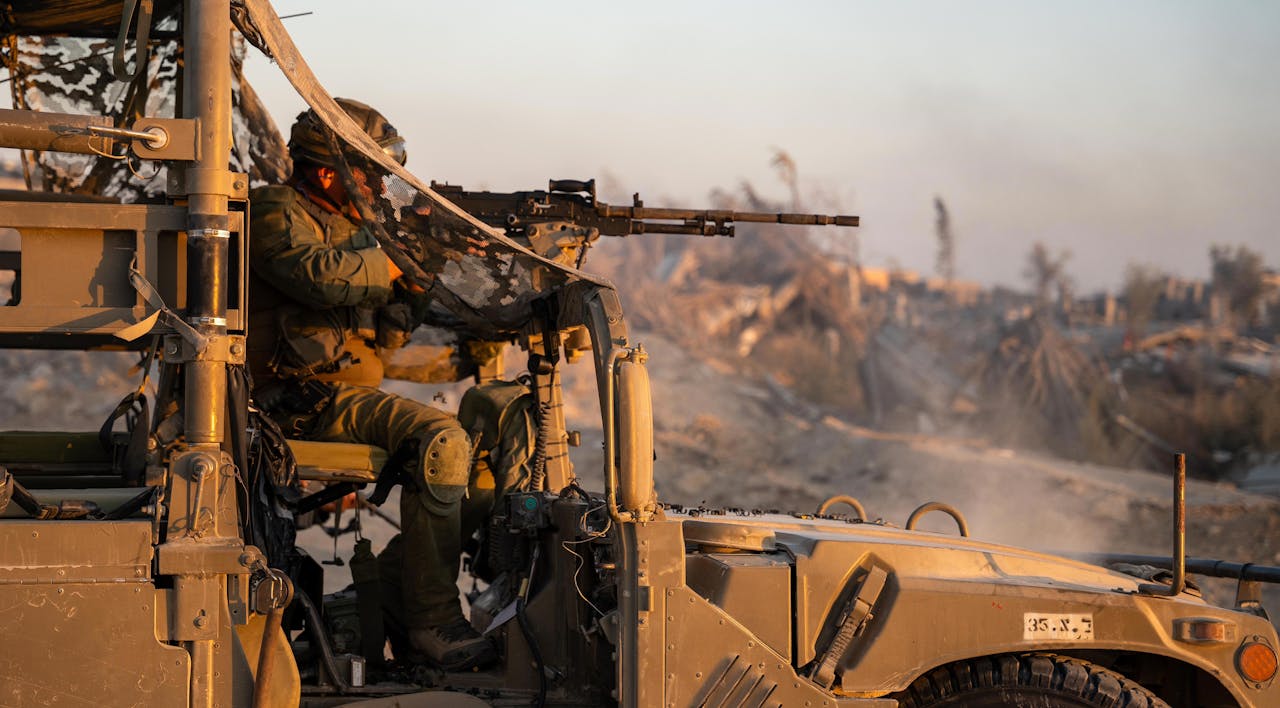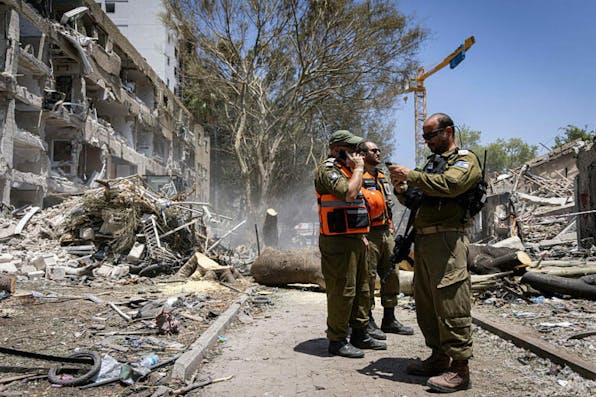
June 2025
The Israeli Reservists Who Just Won’t Quit
Fighting Israel’s longest war, the IDF’s citizen soldiers are revitalizing the Zionist ideal.
On June 16, 2024—just shy of a year ago—an Israeli journalist published an alarming article on the popular Hebrew-language news site Mako. The army, Shai Levy wrote, was heading for a crisis. Many IDF brigades and battalions made up primarily of reservists were operating at 60 or 70 percent of full strength, or even less. Senior officers reported that the situation was already dire and “expected to get worse.” One tank-battalion commander told Levy: “In this last round [of calling up reservists] we dropped down to a 60-percent rate of reporting for duty. Soldiers were injured; one has a wife with a high-risk pregnancy; a second one’s household is falling apart and he’s in the process of getting divorced. . . There is no way to tell them to show up after they already did 140 days of reserve duty.” One infantry-brigade commander added that his battalion commanders see the situation getting worse and “expect that there will be a sharp drop in turnout and a crisis for which we need to prepare.”
The story kicked off a discussion in Israeli media, which has gained fresh momentum in recent months and been picked up and amplified in the international press. The issue is indeed an important one: if the IDF is facing a shortage of soldiers on the level predicted by much of this news coverage, it could lose its ability to continue waging a multi-front war in accordance with the government’s stated objectives. Moreover, if reservists in large numbers aren’t showing up for duty, Israel could be facing a possible collapse of the most important of all military resources: morale.
My aim in this essay is to show what these reports get right and why the concerns they raise must be taken seriously, as well as what they miss and why the direst predictions have not come true. To do this, we need to begin by putting the current war in historical perspective.
